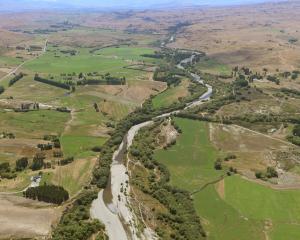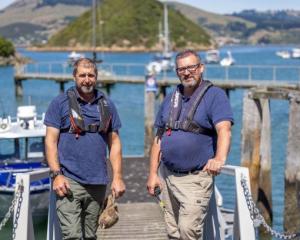"Education-first" has remained the Otago Regional Council’s key approach for implementing new national freshwater standards.
Councillors were updated yesterday on the council’s progress in implementing the new National Environment Standards for Freshwater and regional water plan changes that came into effect two months ago.
While progress had been made in most areas, councillors had questions about the requirement for farm plans, which one councillor said were creating a "traffic jam".
Between the announcement of the new national rules at the beginning of August and the end of September, the council had received 102 public inquires, a report to councillors written by consents manager Joanna Gilroy said.
That led to staff thanking councillors for approving an annual budget increase of $1million to hire 16 new staff to ensure Otago complied with the new national freshwater standards in August.
A new staff member would start next month to help respond to public inquiries, which had "spiked".
Other progress included creating an information hub on its website about the new national and regional water rules, training of staff and farm visits.
The council had also been working on developing consent processes to give effect to new rules, the report said.
However, community communication was the main focus.
Regulatory staff had attended more than 10 community events to inform people of the new national and regional rules, taking an "education-first" approach, Ms Gilroy said.
Cr Bryan Scott said he had attended a few of the community meetings and staff were doing a "wonderful" job.
But he said the process surrounding farm plans — which would become a requirement in the next 12 months and involve a farm map identifying features such as waterways, discharge of contaminant areas and high erosion-prone areas — had been a "traffic jam", and he hoped they could be done sooner rather than later.
Regulatory general manager Richard Saunders said staff were waiting on the details of what the farm plans would require, which were being worked on by the Ministry for the Environment, with involvement from Ministry for Primary Industries and regional sectors.
Farmers and the regional sector had expressed that they were "keen to get them up and running", and while industry and catchment groups had developed plan models, a consistent model was still being looked at, he said.
Cr Kate Wilson suggested that a standardised legend be approved "tomorrow" to help people get on with their plans and maintain consistency.
"When people are developing plans, and many people are well down doing that process, not having a standardised legend causes data people no end of issues.
"You look at a plan and you don’t know what colour is water, what colour is trees, or forestry."
However, it did not seem likely that would happen.
Mr Saunders said he would pitch the idea to the regional sector representative, but that it was not likely to be considered due to there being many other details that had not been worked through.












